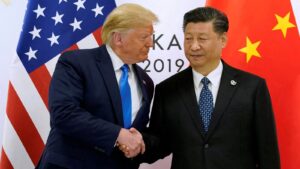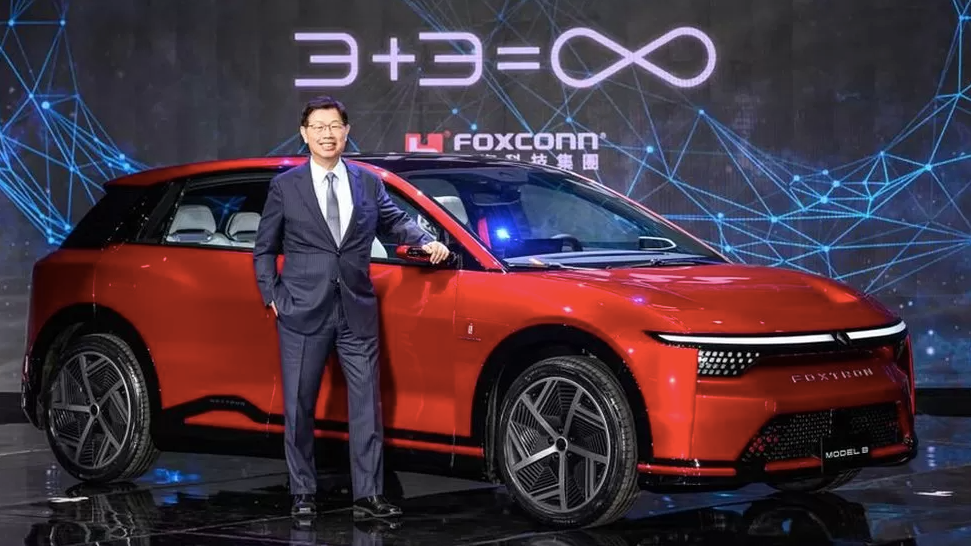|
Getting your Trinity Audio player ready...
|
Foxconn, the renowned manufacturer of iPhones, is placing a significant bet on electric cars while revamping its supply chains amidst the challenging relationship between Washington and Beijing. In an exclusive interview, Chairman and CEO Young Liu shared his insights on the future direction of the Taiwanese company.
Liu emphasized that despite some supply chains being moved away from China, electric vehicles (EVs) will be the driving force behind Foxconn’s growth in the coming decades. As tensions escalate between the US and China, Liu stated that the company must be prepared for potential adversities.
“While we hope for peace and stability, as a business and as a CEO, I have to consider the worst-case scenario,” said Liu, 67, from his office in Taipei, Taiwan’s capital.
Potential scenarios include Beijing’s attempts to blockade or invade Taiwan, a self-ruled island that China claims as part of its territory. Foxconn has already commenced “business continuity planning,” with certain production lines linked to “national security products” being relocated from China to Mexico and Vietnam. The reference is likely to servers manufactured by Foxconn for data centers, which can house sensitive information.
Established in 1974 as a TV knob manufacturer, Foxconn, officially known as Hon Hai Technology Group, has transformed into one of the world’s most influential technology companies, generating an annual revenue of $200 billion (£158.2 billion). While renowned for manufacturing over half of Apple’s products, including iPhones and iMacs, the company’s client roster also includes Microsoft, Sony, Dell, and Amazon.
For decades, Foxconn has thrived on a well-established playbook followed by multinational corporations: designing products in the US, manufacturing them in China, and subsequently distributing them globally. This strategy propelled Foxconn from a small component-making business to its current status as a consumer electronics giant.
However, as global supply chains adjust to the deteriorating relations between Washington and Beijing, Foxconn finds itself in a challenging position, caught between the world’s two largest economies, which have been instrumental in the company’s growth thus far.
The ongoing tensions between the US and China extend to Taiwan, where Foxconn is headquartered. It represents a significant potential flashpoint, given the heightened geopolitical concerns.
Liu sees electric cars as the next major opportunity for Foxconn, leveraging its expertise in technology and manufacturing. During a test drive in a white SUV, he highlighted the familiarity of the control panel, resembling a large iPhone.
“The reason why we think this is a great opportunity for us is that with the traditional gas engine, you have engines which are mostly mechanical. But with EVs, it’s batteries and motors,” explained Liu, emphasizing the company’s technological prowess.
With ambitions to capture approximately 5% of the global electric vehicle market in the next few years, Foxconn aims high despite having produced only a handful of EV models thus far. Liu remains confident that this strategic gamble will pay off.
Liu emphasized the importance of regionalized production for electric cars, stating, “It doesn’t make sense for you to make [EVs] in one place.” Foxconn plans to establish car factories in Ohio, USA, as well as in Thailand, Indonesia, and potentially India.
While Foxconn will continue to focus on its core strength of manufacturing electronic products for clients, the foray into electric cars represents a diversification of both production and supply lines. Liu believes that these strategic moves hold the key to the company’s future success.



